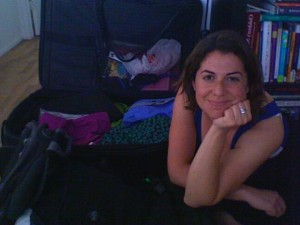Is there anything more provocative than failure?
By definition, we can’t have success without failure. How could we recognize either if there were no standard against which to pit them? “You wouldn’t appreciate the sun if we didn’t have the rain!” a belligerent character in a Weather Channel commercial once shouted. Yin and yang. Of course, this situates success and failure as binaries when a continuum is probably more productive and accurate. Still, the poles are out there. And like Harry and Voldemort, without the one, the other can’t survive (unless one sacrifices himself to kill the other and then comes back to life because he isn’t a gross baby in a train station. But anyway…).
According to research from resilience and positive psychology, in order to realize success, individuals don’t just need failure to exist conceptually — they need to experience it personally. Failure delivers a context for developing coping mechanisms, such as self-regulation, grit, and innovativeness. Too much success might set us up for failure for, when an all-mighty challenge rears its ugly (I mean, opportunity-studded) head, we gifted coasters will be tool-less, sans skills for managing. And down we will tumble (activating our panic attacks, eating disorders, and control issues along the way…).
How do we establish space for failure when the stakes are getting higher, the margins for error slimmer? How, then, with this pressure and such a narrow definition of success, can we expect anything BUT failure? We set the conditions for failure — then punitively disallow it. Yet we demand innovation!
I read a book last year, Eric Weiner’s The Geography of Bliss. This interesting albeit somewhat superficial text was part travelogue, part treatise on cultural definitions and strivings for happiness. From its New York Times book review:
“Icelanders relish personal failure and “indulge in ‘enjoyment of misery,’ ” while “Moldovans derive more pleasure from their neighbor’s failure than their own success.” … Denmark’s key to happiness is lowered expectations” (Paul, 2007).
How do we rationalize failure? And how do we go about developing the character traits necessary for surviving its visitation and ultimately enjoying our lives?
The New York Times Magazine recently featured an article by Paul Tough entitled What if the secret to success is failure?. I highlighted the text, pasted it into a GoogleDoc, highlighted sentence fragments and passages that resonated, and inserted my comments. This document is open for you to edit and I would love it if you would do so. What are your thoughts on this (admittedly lengthy) piece? What resources can you point me towards, as I have added in for you?
[Seligman] “…identified a set of strengths that were, according to his research, especially likely to predict life satisfaction and high achievement. After a few small adjustments (Levin and Randolph opted to drop love in favor of curiosity), they settled on a final list: zest, grit, self-control, social intelligence, gratitude, optimism and curiosity” (Tough, 2011, emphasis added).
What do you think about the items on this list? What, if anything, does it say about our culture and/or the culture of our schools that these principals chose to replace “love” with “curiosity”? Isn’t what the world needs now love, sweet love?
Looking forward to our dialogue!
P.S. I’d also like to point you towards an online conversation amongst students on the topic of character. Fascinating!
P.P.S. I’d also like to welcome you to read my notes from Thursday’s Ken Auletta talk. In addition to exploring Google and the digital age, he talked a lot about what makes people tick…
https://docs.google.com/document/d/1BFkTxCdgS3ElU3TUhHlf5JlgTgMB8aXwg8ozBu4_1Mo/edit?hl=en_US


